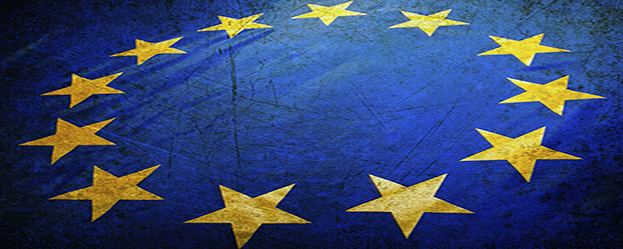This website uses cookies so that we can provide you with the best user experience possible. Cookie information is stored in your browser and performs functions such as recognising you when you return to our website and helping our team to understand which sections of the website you find most interesting and useful.
Business News Labels & Publishers Legal
European Parliament votes down Copyright Directive, meaning further safe harbour debate in September
By Chris Cooke | Published on Thursday 5 July 2018

The European Parliament has voted down the current draft of the European Copyright Directive as passed by its legal committee last month, with 278 in favour and 318 against. It means the full Parliament will now further debate copyright reform in Europe in September.
For the wider music industry, article thirteen of the directive is the most important, it reforming the safe harbour that music rights companies reckon user-upload platforms like YouTube have been exploiting to score unfair licensing deals. This article, along with article eleven, proved the most controversial, resulting in a big campaign against the directive led by the tech lobby in recent weeks.
Responding to the vote in Parliament this morning, GESAC – which represents song right collecting societies across Europe – said it saw this outcome as “a missed opportunity to fix the current unfairness in the digital market once and for all, despite almost two years of thorough discussions and overwhelming evidence presented”.
However, it said it remained optimistic that the reforms requested by the music community would ultimately go through. “Europe’s creators nevertheless remain mobilised”, it added, “and hope that the European Parliament will eventually reach a positive solution … based on facts and common sense”.
Hitting out at the claims made by those who oppose the directive, and especially articles eleven and thirteen, GESAC President Anders Lassen said: “This vote was never about censorship or freedom of speech. It was only about updating the copyright rules to the 21st Century and ensuring that creators get a fair remuneration when their works are used in the digital space”.
He went on: “The legal services of the EU institutions and specialised agencies in the EU have given evidence to support the compliance and necessity of the rules proposed by the text, yet unfortunately manipulative campaigns orchestrated by tech giants based on scaremongering prevailed on this occasion. We are confident that the European Parliament will finally approve what is right for the future of the EU’s economy, competitiveness and fundamental values against these global forces”.
Helen Smith of pan-European indie labels trade group IMPALA noted that there had been just two weeks since the Parliament’s JURI committee passed the current draft of the directive and today’s big vote, and that that was two weeks in which the tech lobby went into overdrive with its ‘this will break the internet’ shouting.
Smith told reporters: “The result underlines that although many parliamentarians were satisfied, others were simply not ready to decide. Today’s decision means there will be another debate. We are confident that in September the Parliament will reach a conclusion and secure a fair and sustainable internet. Platforms facilitate a unique relationship between artists and fans, and copyright reform should help rebalance the licensing framework around this”.
Likewise criticising the tech sector’s big lobbying push – what IMPALA has dubbed a “disinformation campaign” – Smith added: “Copyright aside, the hijacking of the process raises fundamental questions about how incumbent platforms and supposedly objective operators abuse their position. It underlines the need for greater transparency and scrutiny, especially with actors who have huge potential to influence public opinion and are not shy about using it”.
From a UK perspective, Geoff Taylor of record label trade group the BPI said: “We respect the decision by MEPs to have a [full] discussion on the draft copyright directive. We will work with MEPs over the next weeks to explain how the proposed Directive will benefit not just European creativity, but also internet users and the technology sector”.
Meanwhile PRS For Music CEO Robert Ashcroft added: “It is perhaps unsurprising considering the unprecedented level of lobbying and the comprehensive campaign of misinformation which has accompanied this vote that MEPs want more time to consider the proposals”
He went on: “From the outset our primary focus of this legislation has been concerned with whether or not the internet functions as a fair and efficient marketplace – and currently, for artists and authors, it doesn’t. They want their creative works to be heard, they embrace technology, but they want to be paid fairly. We will continue to fight for what we believe is their freedom and a fair use of their creative works”.





